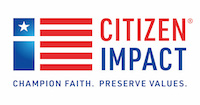Education groups seek clarity in scholarship law
by Lindsay Field
The Marietta Daily Journal
ATLANTA – More than 7,000 Georgia students, including some in Cobb County, receive scholarships to attend private school under a state program. Still, though, some education groups are working for more clarity and transparency in the Georgia Tax Credit Scholarship Program law.
The program became law in 2008, and is available for students in kindergarten through 12th grade. Credentials and guidelines for students who qualify for the scholarships in Georgia are different for each Student Scholarship Organization.
The law itself does not limit who may receive a scholarship, however, it does determine the amount of money that may be awarded for any particular scholarship, per House Bill 325. That amount has not yet been released by the Department of Revenue. “While the scholarship program is giving hope to thousands of children across the state, reforms are needed to increase transparency and accountability,” said Jerri Nims Rooker, director of the Center for an Educated Georgia. “CEG hopes the Department of Revenue and the Georgia General Assembly will make changes to the program to help more low-income children have access to the quality education they deserve.”
Scholarships are awarded statewide by independent nonprofit organizations like the Arete Scholars Fund, which is in its second year of providing scholarships to low-income families. Arete limits themselves to paying up to $5,800 per student for annual scholarships.
The Georgia Department of Revenue matches dollar for dollar state income tax credits for individuals, families and corporations who donate funds for the scholarship programs. There are limits, $1,000 per individual, $2,500 per couple, and up to 75 percent liability for tax ability for corporations.
LaKeate and Clarence Knox of Marietta said they are extremely thankful for the Arete scholarships that their daughters, Alexus, 12, and Trinity, 6, will use this school year.
“I can’t say enough about the program,” said LaKeate Knox, whose daughters will be attending Atlanta Classical Christian Academy in Smyrna for the second year. “(Arete) really are trying to help people out … and as far as my kids’ performance at the school, I am amazed.”
Knox said that in 2010, shortly after enrolling her daughters into the school, she lost her job and the family was in danger of losing their spots at the academy, where tuition is approximately $7,900per year.
“We were in jeopardy of our kids actually being put out,” Knox said. “It was just by chance that the school matched us up with Arete. I don’t know how I could have possibly paid it without (Arete).”
Another group, known as the Southern Education Foundation, has asked the Georgia revenue department to define the term “enroll” better. State lawmakers this year introduced House Bill 369 that would have closed the “enroll for a day” loophole that requires scholarship applicants to attend public school for a significant amount of time before they would be eligible to receive a scholarship.
Buck Alford, communications manager with Arete, said the law’s confusing language has caused some misinterpretation by scholarship programs.
Arete scholarships are specifically for low-income families in Georgia, and the nonprofit collects funds only from corporations, as opposed to individuals or families. Arete expects to award about 2,000 scholarships for the 2011-2012 school year, up from 262 awards last year.
“(Corporations) can take a dollar that they had intended to pay in state income tax and redirect it to pay that to a student scholarship organization … they are seeing this as a budget-neutral way to give to their community,” Alford said. “We haven’t run into a corporation who philosophically didn’t get excited about this program.”
Donna and Rick Neal’s son Garrett, 6, is another student awarded an Arete Scholars Fund scholarship this year. Garrett will be repeating kindergarten this school year at Trinity Chapel Academy in Powder Springs on Aug. 8. Tuition there is $6,300 per year.
“If it weren’t for that scholarship, he wouldn’t be there,” Donna Neal said. “We hope to keep him in the program and I will apply to it every year if we have to.”
Neal, who has recommended the scholarship program to others, said the private school is best for her family.
She said that with the larger class sizes in the public school system, typically around 25 children per class, she was worried that her son would not get the attention needed to help him learn well.
“(Garrett) doesn’t have a learning disability, but with his hyperness, it helped Garrett to concentrate and focus with the smaller classes,” Neal said. “He loves his teacher …. his principal was phenomenal.”
